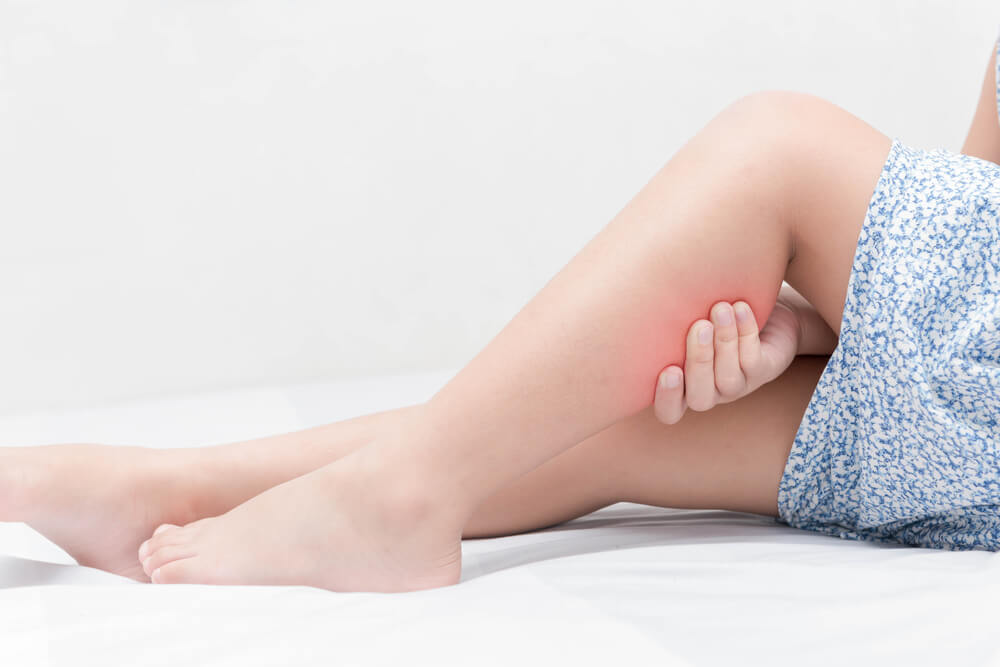Growth hormone deficiency is a disorder that results in short stature, growth retardation and physical maturation delays. What follows is an overview of the symptoms, causes, treatments and more.
Growth Hormone Deficiency in Children
Attached to the hypothalamus near the base of the brain is the pituitary gland. It’s about the size of a pea and the body’s master gland.
The pituitary gland produces a variety of hormones, including the growth hormone. Damage or abnormality in the growth hormone can create deficiencies, especially in children whose bodies are still in the development process.
Growth hormone is critical to childhood growth. It also helps to regulate body composition, muscle and bone growth, sugar metabolism, and possibly cardiovascular health.
Under normal circumstances, here is how much a child should grow::
- 0–12 months: about 10 inches in growth
- 1–2 years: about 5 inches a year
- 2–3 years: about 3 1/2 inches a year
- 3 years to puberty: about 2 to 2 1/2 inches a year
- puberty: 3 to 5 inches a year
If children fall below the third percentile in the “normal” height for children at a specific age, they’re considered at risk for growth hormone deficiency. If your child is not growing at a normal rate, ask your pediatrician if you should be referred to an endocrinologist to evaluate their growth.
Damage in the pituitary gland or the hypothalamus can occur before or after birth. But there are cases where the deficiency is idiopathic (not known).
Symptoms
Deficiencies in growth hormones can be hard to detect since growth in children takes place over years and each child matures at different rates. But there are visible signs indicative of a growth hormone issue.
- Noticeable slow growth with normal body proportions
- Compared to peers, immature appearance
- Chubbiness in body build
- Prominent forehead
- Underdeveloped bridge of the nose
If you’re seeing any of these conditions in your child, you should consult a pediatrician for a diagnosis.
Causes
Growth hormone deficiency is typically the result of damage or abnormality in the pituitary gland or hypothalamus. This condition can occur pre- or post-birth. In many cases, the deficiency is idiopathic.
When the GH deficiency is acquired could be secondary to head trauma, brain tumor in the hypothalamus or pituitary gland, radiation therapy if it included the pituitary/hypothalamus, autoimmune in nature (when the immune system attacks the pituitary), or diseases like histiocytosis, known to infiltrate the pituitary gland.
Growth failure can be seen in other conditions such as untreated hypothyroidism, excessive cortisol, production, gastrointestinal disorders such as Celiac disease or Inflammatory Bowel Disease, poor nutritional intake, and medications
Seeing a specialist regarding the health of your child can be intimidating. On top of that, growth hormone deficiency isn’t a topic that everyone talks about, so not knowing what to ask isn’t a surprise. Here are a few questions you should ask your doctor:
- What’s the cause of the pediatric growth hormone deficiency?
- Can you tell me more about growth hormone replacement therapy?
- Are there side effects or dangerous risks associated with hormone therapy for children’s growth?
- How is growth hormone deficiency treated?
- How long is the treatment?
- How will the treatment affect my child’s growth?

Detecting Growth Hormone Deficiency
In order to determine if your child has growth hormone deficiency, the healthcare provider will obtain a history and perform a thorough physical exam. They are going to order laboratory work to exclude other causes of growth failure or poor growth. Depending on the work up done, they could also request a growth hormone stimulation test to confirm growth hormone deficiency.
Deficiency of Growth Hormones in Children FAQs
- What is growth hormone deficiency?
Produced by the pituitary gland and the hypothalamus, the growth hormone is a protein. If either the gland or hypothalamus is not formed correctly or is damaged, the gland can’t produce sufficient growth hormones. The pituitary gland releases as many as eight different hormones including hormones that control puberty, cortisol production, and the production of thyroid hormone. When the pituitary gland is not producing more than one pituitary hormone, it’s called hypopituitarism. Inadequate growth hormone production is potentially detrimental to a child’s natural growth.
- What’s the cause of growth hormone deficiency?
Abnormal formation of the hypothalamus or pituitary gland causes growth hormone deficiency. This can happen before the child’s birth (congenital) or occurs after birth (acquired). Take note this condition may not be the cause of a child’s short stature. Other causes can be medications, insufficient nutritional intake, gastrointestinal disorders, hypothyroidism and diseases with increased metabolic demand.
- Can growth hormone deficiency impact intelligence?
Growth hormone deficiency is solely a physical affliction. It will have no effect on the child’s intellect.
- Can we treat growth hormone deficiency?
Yes, a child can be treated with growth hormone injections. The earlier the growth hormone deficiency is diagnosed and treatment starts, the greater the chance the patient has of attaining normal height. Growth hormone deficiency treatment in children entails injections of synthetic human growth hormone. Children will need daily injections. Results are usually visible after the first three to four months of treatment, but the treatment can last several years. Unfortunately, not all children respond to the treatment.
- Will the doctor customize growth hormone deficiency treatment?
A pediatric endocrinologist who specializes in hormone problems is the one that treats growth hormone deficiency. They will monitor the child’s growth and customize the treatment based on their response. This may require frequent monitoring of their growth factor levels and a bone age to determine if the growth plates are still open.
- What can parents do to help their child?
Children with this condition, which makes them shorter than their peers, can suffer from depression and low self-esteem. Counseling or support groups may benefit you and your child. Parents should also work with health care professionals to create and implement a plan to manage their child’s condition.
- Is pediatric growth hormone deficiency treatment safe?

Researchers generally agree treatment is relatively effective and safe. There are potential side effects, especially if the child doesn’t have a true hormone deficiency. Side effects can include:
-
- Muscle aches
- Joint discomfort
- Headaches
- Swelling of feet and hands
- Pseudotumor cerebri: a condition in which the pressure around the brain increases, causing headaches and vision problems
- Slipped capital femoral epiphysis (SCFE)
- Worsening of underlying scoliosis curve
- Increased hyperpigmented nevi
- Increased insulin levels/alterations in glucose metabolism
The shots can impact insulin production in the body. Children with diabetes can get growth hormone shots, but their blood sugar levels need careful monitoring.
At Pediatric Endocrine and Metabolic Center of Florida, we have a team of board-certified pediatric endocrinologists. Our mission is a commitment to serving the health care needs of your children suffering from growth hormone deficiency.
Outside of treatment, education and support are the most important action we can take when it comes to growth hormone deficiency treatments. We’d appreciate it if you shared your thoughts on this subject with us and this blog with others. Contact us to find out more.


